Hong Kong Filmmakers Discuss the Dire State of the HK Film Industry

The COVID-19 pandemic has made the already cold Hong Kong film industry even colder. For nearly twenty years, HK movies were the fire of Asian cinema, dominating the eastern sphere. HK films pioneered Chinese cinema, and the Chinese diaspora carried these films wherever they went. There wasn’t a single country in the world where they weren’t exposed to HK’s legacy.
But the HK film industry—overwhelmed by its much larger Asian neighbors—has been on a downward spiral since the late 90’s. HK films are no longer as influential as they were thirty years ago. Some even say that HK films have already completed its mission, and has passed down the baton to their neighbors.
Hong Kong’s four great filmmakers—Derek Yee (爾冬陞), Henry Fong (方平), Ronald Wong (黃斌), and Cheang Pou-soi (鄭保瑞) all came together to discuss about the future of Hong Kong’s film industry. From the problems the industry are facing today, to the possibility of having a great revival, here are their thoughts.
The HK People Can No Longer Relate to Their Films
 The failure of catching up to the times, the “ingenuity” of its stories, the shrinking of its market, and the lack of relatability in co-produced films have led many to claim that HK films are already dead. Over the past decade, more and more HK films have become co-productions with other industries, specifically with the much larger mainland Chinese film market.
The failure of catching up to the times, the “ingenuity” of its stories, the shrinking of its market, and the lack of relatability in co-produced films have led many to claim that HK films are already dead. Over the past decade, more and more HK films have become co-productions with other industries, specifically with the much larger mainland Chinese film market.
“Hong Kong viewers aren’t exactly satisfied with co-produced films [with China],” said Derek Yee (The Shinjuku Incident, The Great Magician). “A lot of these films are tied by regulations. You can’t do movies that are about triads, that are violent, or too erotic. That’s why, eventually, these co-produced films drove Hong Kong viewers further and further away from them. At this rate, you basically can’t turn back.”
In a previous interview, Cheang Pou-soi (The Monkey King, SPL 2) said that Hong Kong films were the first to give up on their audiences. Yee agreed with his statement. “It’s true. When we made these films, we didn’t consider the Hong Kong viewers. That’s why they’ve given up on us. We also have so many options to choose from. We’re not limited to consuming just one market. Take Korean films for example. They’re very versatile. Even films in Japan and Taiwan have looser restrictions.”
The HK industry’s biggest flaw is its failure to capture the interest of its main market. HK people stopped consuming their films because they did not find them worthy to watch anymore. Because of this, many film investors have started to look elsewhere, specifically the much larger mainland market. This has, overtime, pushed back the HK film industry even further.
Can Pure HK Films Still Survive?
But if Hong Kongers don’t enjoy co-productions, would they be interested in watching a pure local film again? Will the HK industry be revived with more local productions?
“Let’s not talk about the mainland and Taiwan,” said Henry Fong (Forsaken Cop). “Because they are now in a more advanced position. Our films used to be very popular in Singapore, Malaysia, Thailand, Indonesia, England, the Netherlands, and North America. If we just work on doing local films, would we be able to survive?”
Yee did not have a very optimistic answer. “If I was the investor? If you give me 1 million Hong Kong dollars to do a movie that won’t be sold overseas, then you are crazy. With that HK$1 million, HK$300,000 of that would go into marketing, and then you’ll be left with nothing to use. By then, you’ll have to ask the media to help out.”
He added another example: “Let’s say the movie’s budget is HK$1.3 million. To earn a profit, that film would have to gross as least three times its budget, equating to HK$3.9 million. Including marketing, office rentals, and other admin fees, that just wouldn’t be enough. You’re still losing money.”
The lack of funds, the small market, and the lack of interest among the HK public to support local films have been pushing the industry to a dead end for years, long before the current pandemic.
Movies are a form of commercial art. To make a good film requires a decent amount of funding and creativity. “Take going to a restaurant for example,” said Fong. “Usually you eat first before you pay, but when you’re making a movie, you’re paying first before you eat. You don’t even know what you’re going to eat yet. It’s a huge gamble.”
Derek Yee Tells Louis Koo: “Watch Out for Your Wallet”
 A few years ago, just as the industry was in deep discussions about its dire condition, Louis Koo (古天樂) splurged out the money to create his own film production studio in hopes to revive the HK film industry. Yee found his attempts to be bittersweet.
A few years ago, just as the industry was in deep discussions about its dire condition, Louis Koo (古天樂) splurged out the money to create his own film production studio in hopes to revive the HK film industry. Yee found his attempts to be bittersweet.
“I told him to watch out for his wallet,” said Yee. “But he’s saved a lot of money, and I am not the person to hold back someone who is so hot-blooded and passionate for the industry. All I can do is offer him my care.”
Actor-producer Ronald Wong said, “He is worthy to support.” Yee added, “I believe in karma. A good heart will be rewarded.”
Will There Be More Cop Films in the Future?
The Hong Kong action and crime genre was what made HK films known in the world. However, recent political and societal struggles have made the topic sensitive.
“It’s hard to say what will happen,” said Yee. “This is still ongoing, and hasn’t quite made history yet.”
In 2004’s One Nite in Mongkok <旺角黑夜> directed by Yee, there was a scene featuring a cop beating up a person. In the 2007 film Protégé <門徒>, Daniel Wu (吳彥祖) was brutally attacked by customs officers after he was arrested. How would these scenes carry over if they had occurred in films made today?
While these questions are difficult to answer, they are important to consider. Though the crime genre is very sensitive to pursue during this time, Cheang said the Hong Kong people are exceptionally well at adapting. It is not in their nature to keep silent, and he believes that filmmakers and other artistes will come up with their own creative ways to share their vision.
Source: HK01.com
This article is written by Addy for JayneStars.com.



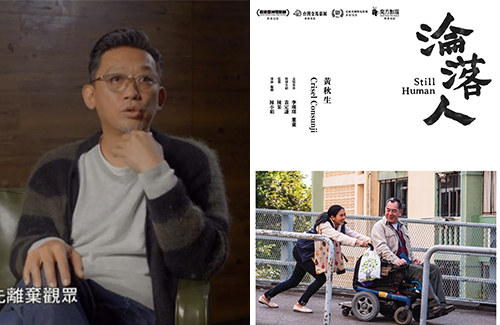
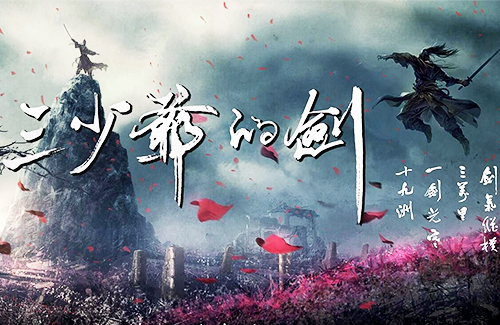
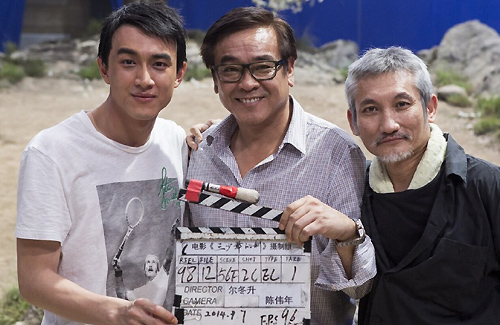
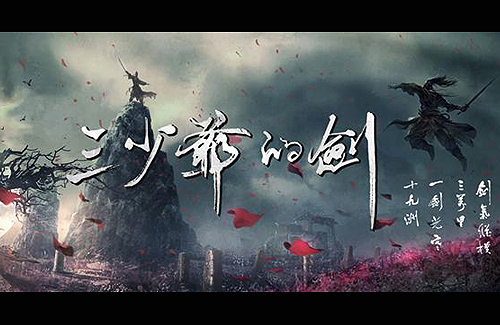

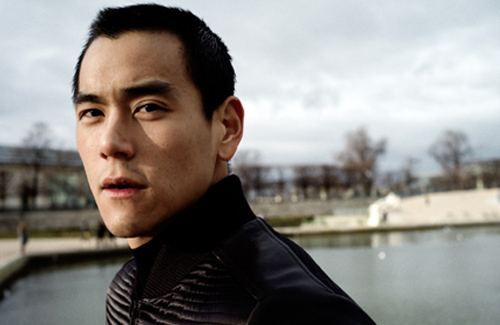
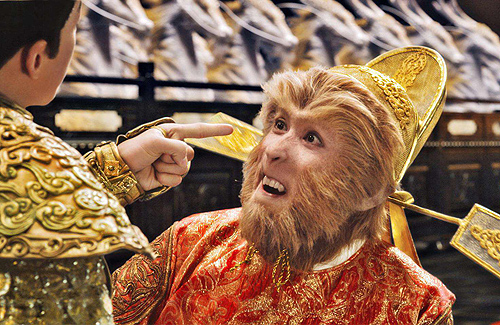
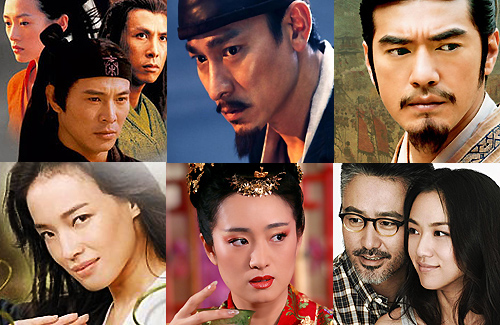
The problem is that everyone gave up on kung fu movies. Seeing kung fu as a cliche rather than strength. The west is making kung fu genre tv series were very well received such as netflix marco polo, amc into the badlands, cinemax warrior. They surpassed HK. When TVB finally made a kung fu drama a Fist within four walls everybody loved it because it has been such a long time that TVB stopped making kung fu dramas. Ip Man is like the last kung fu HK movie that was good and had an international release, brought lots of people to tears when the legacy ended. Yet, you got chinese ppl bashing it`s pro PRC, it`s cliche oh let`s boycott it. I`ve never seen a race mocking it`s own race like that. Do more kung fu movies, do more chinese vampire horror action movies , find real actors and actresses that are martial artists. If you don`t produce a decent kung fu genre movie made in HK, HK movie industry will lose its popularity forever. I guarantee you 110%. I watch shaw brother movies on netflix it`s so good and It`s movies from the 70s. All the “cool“ foreign movies are now korean, indian, south asian (martial arts), spanish. HK losts its spot. If it`s not for Ip Man on Netflix and movie theatre … HK will be inexistent in the international level.
@jujuxoxo “Ip Man is like the last kung fu HK movie that was good and had an international release, brought lots of people to tears when the legacy ended. Yet, you got chinese ppl bashing it`s pro PRC, it`s cliche oh let`s boycott it. I`ve never seen a race mocking it`s own race like that.”
You’re right it’s quite bizarre. Poor Yip Man doesn’t deserve to be slandered by uneducated HKers. I wonder how the initial reception was when thee first movie first cane out at 2008… maybe it got milked too much and people began thinking it as propaganda
@jujuxoxo
Absolutely agreed regarding the kungfu movie. Hollywood has it’s sci-fi with the special effect that second to none and HK had it’s kungfu movie that no one can compete. I won’t say One Upon A time with Wang FeiHung is overly violent that will violated the censorship. Those kungfu moves are arts.
But it seems like HKers preferred to stay away from their own roots as Chinese and hug the foreign culture instead after HK handed back to China in order to proves something, so those kungfu movies were ridiculed as bootlicking the PRC. Well, that’s the beginning of their downfall….
@niangniang the Kung fu movies are just self-serving propaganda films for the CCP. There is no creativity in those movies either. China made some great movies in the 90s and early 00s but even their films nowadays leaves a lot to be desired
@longhair84
“the Kung fu movies are just self-serving propaganda films for the CCP. There is no creativity in those movies either.”
This is what I am talking about. This is the very thought that causes the downfall of HK movie industry. Every single thing under the sun has to be considered as propaganda by/for CCP.
HK had been producing Kungfu movies long before it got back to Mainland, they were great at it. The movies were phenomenal until the West not only in HK or Mainland. HK is a niche/small market, the hard cash come from outside HK. But the moment HK back to Mainland they stop producing it because they wanna shed every single thing that identify them as Chinese.
Now those CGI so called kungfu movies are rubbish. They want to copy the Hollywood special effect but sorry HK, you are just can’t. The only decent kungfu movie recently was Rise of The Legend with Eddie Peng as Wang Fei Hung. He is good but of course he is not Jet Lee or Donnie Yen. No more great talent in Kungfu movies because no mentor to train the newbies anymore. Those mentors are also shunned as propaganda tools for CCP
@jujuxoxo Ip Man was well received by the local hongkongers. It’s the sequels that got up people’s noses because how long can you go on before people get tired of the cliche that is “the foreign devil has wronged us, we must fight back” rhetoric that just comes across as brainwashing and nationalistic. It plays well to the mainland audience but locals see it for what it is.
Either way, Hong Kong movies have been going downhill for a number of reasons namely:
A) lack of talent – majority of the older actors came from tv but as tvb stopped producing good actors/filmmakers this had a knock on effect on their film industry.
B) censorship – the mainland co-productions require them to meet certain criteria’s to avoid the films getting banned in China so this itself has an effect on how creative they can be.
C) competitors – the quality of movies have gone up in other parts of Asia, particularly in South Korea. The asia-Pacific region is no longer dominated by Hong Kong movies as other countries have caught up.
D) the cinema experience – people don’t watch movies at the cinema anymore unless it’s a Hollywood blockbuster.
@jujuxoxo after jet li and Donnie Yen, who are the next Kung fu stars?? There are none because they don’t have the charisma nor are the films any good. Too much CGI ruined these movies.
The people that is trying to revive it is the same people that caused it to be stagnant. It’s basically like a private club where selected few can join. I don’t watch anymore because it’s always the SAME people acting 90% the same role recycling the same plot line. They are like in their own happy bubble. No room for new ideas.
@sev2 you’re right. The people interviewed here are past it. Derek Yee made some great movies about 15-20 years ago but his recent output has been very meh
I think HK’s glory days (in films in this context) are long over. No use lamenting on the past now… A good start to reform the industry would be stop hiring hacks who can’t act especially the beauty pageant “queens” and ABC’s who can’t speak a lick of Cantonese.
@karina but even before during “glory days” they used pageant queens
I can’t foresee HK has a chance of reviving its industry. It’s as good as gone.
The problem with HK film industry:
Lack of creativity. Cop Movie, Shollow and pitiful family problem movies/tv shows, Cop movies, Cop movies, and move Cop movies.
Lack of good actors: Same few actor/actress over and over again. And most of them just acting/playing the same character on every film but just reading different lines.
Lack of budge: same low quality, same kelefeh movies over and over.
Lack of Drives, Ambition and Vision: again, only doing the same safe and kelefeh movies. No innovation, no breakthroughs, no improvements.
The Hong Kong film industry is fundamental. The whole industry is lack of money, artists and directors. There is just no simple or easy fix at all.
The two main reasons why HK movies suck: Relatability and novelty. In fact, this is why HK TV industry is also dying.
They don’t deal with high-career folks. They talk about common people with common lives. Underdogs. Regular Joe Schmoes. And the antics or obstacles they get caught up in. These movies were gritty, they were realistic, but most importantly, they were relatable.
TV series, too. The ones that gets high ratings are the ones that relate to the working class. And not elites.
Novelty is also important. There is like a decade of movies and series that revolve around same old themes – police, business, medical, history and law. Where is the novelty? Movies tend to have more leeway than anything, but even those get boring from rehashing old plotlines.
If they get these issues fixed, everything else will come back.